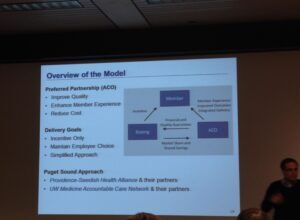Medicare will penalize hospitals for high readmissions rates, starting in 2013. But is this a good thing? Some say it is not.
Medicare will penalize hospitals for high readmissions rates, starting in 2013. But is this a good thing? Some say it is not.
Although most agree that preventable readmissions should be avoided for the patients’ sake, many disagree on what constitutes “preventable,” saying readmissions may not reflect quality and arguing reduced reimbursement actually might be unfair. In addition, there are other correlating factors, including socioeconomic class, support, and comorbidity that might influence readmission rates, according to the report. The report separates readmissions into different classes (planned, unplanned, related, or unrelated to initial admission). It notes that public policy should focus on unplanned readmissions related to the reason for initial admission for savings and care improvements. “Payment penalties intended to shrink readmission rates could exacerbate inequities and leave hospitals with fewer resources to make needed investments in improving patient care,” states the report. “Further, misaligned policies could direct hospitals to reduce readmissions that are appropriate for safe patient care and may actually save lives.”






